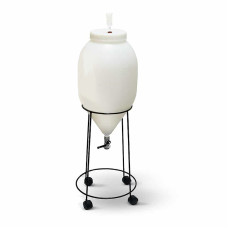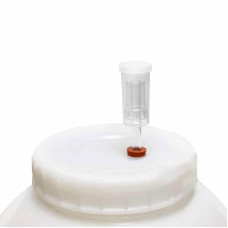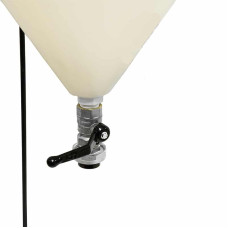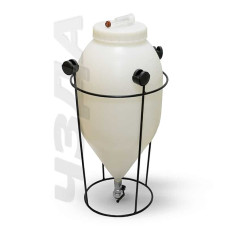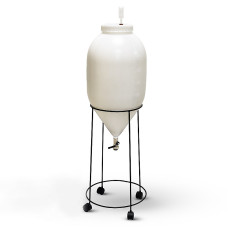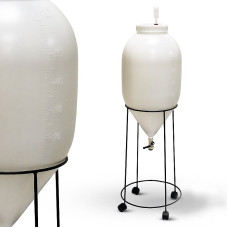0 ₽
Checkout
Hit
The 37-liter conical fermenter from food grade plastic is intended for the primary fermentation of the wort and has a large set of advantages and advantages due to its design. For example, due to the fact that the CCT has a conical bottom and taps fo..
9 200 ₽
NOTIFY
Hit
The 62-liter conical fermenter from food grade plastic is intended for the primary fermentation of the wort and has a large set of advantages and advantages due to its design. For example, due to the fact that the CCT has a conical bottom and taps fo..
11 400 ₽
NOTIFY

Fermentation tanks or fermentors are a necessary attribute of an experienced self-rider, winemaker and brewer. It is in this capacity that the process of fermentation - fermentation. More recently, the use of cylindrical-conical tanks in everyday life was impossible, and home brewers brewed beer, what turned out. Someone used banks, someone buckets, and others used oak barrels. They are a cylindrical vessel with a conical bottom. At the very bottom of the bottom there should be a drain valve through which the sediment is removed from the fermenter. Above this crane there will be another crane, a smaller one. It serves for sampling, for conducting measurements, tastings and various kinds of control studies. In the industrial conical tanks there are many more different units and devices. They serve to maintain the temperature of fermentation, control over the process and other purposes. At home brewing, the use of such complex devices is simply unjustified, and the additional equipment would take up a lot of space, so the conical fermenter for home brewing consists of the vessel itself, in which fermentation takes place, the drain valve, and hydraulic seal. The advantages of using CCT in industrial beer production are indisputable, however you and I are home brewers, and that there is little in the industry that we care about. It is much more interesting to consider the benefits of using conical fermenters in everyday life. As already mentioned, the use of CCT for home brewing has one biggest advantage: it allows you to drain the sediment, not pouring the beer itself. At the same time, the precipitate can be drained at any stage of fermentation. Another remarkable property that CCTs possess is the possibility of sludge removal and the use of subsequent yeast regeneration. Reusing yeast saves you money. The third distinctive feature of CCT is the possibility of bottling beer without using a siphon. beer merges under the influence of gravity, which greatly simplifies the process. Conical fermenters are fairly easy to use. You simply fill in the decontamination solution for a while, and then drain it through the taps. After disinfection is completed, the taps overlap and the wort is poured into the fermenter, just like any other vessel. The tight cover and a hydrolock is established. After completion of the main fermentation, you drain the yeast sediment using an appropriate faucet. Some fermenters are arranged so that the sediment lingers on the walls of the cone. In this case, it is recommended to slightly shake up the beer and allow it to stand again, and then repeat the process of removing the yeast. After the main sediment is removed, the beer is left in the fermenter for secondary fermentation. After which it is bottled.

